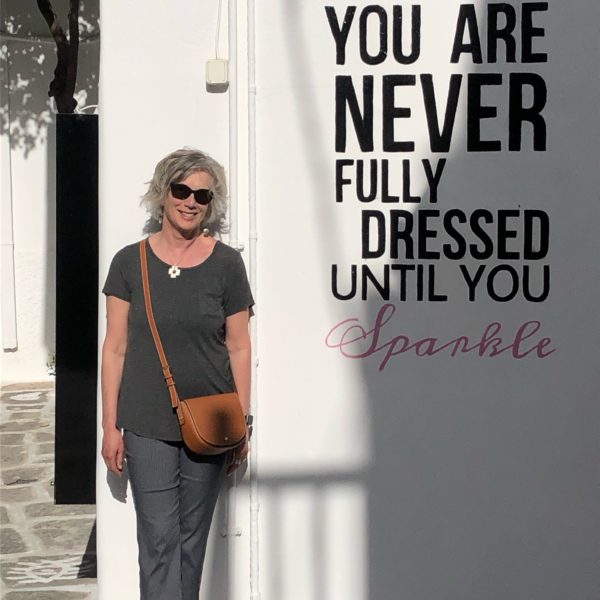
I’ve been thinking about some of the stranger things that have happened to me. This is stuff that I couldn’t make up if I tried. No one would believe me if I spoke of names like Truth and Justice and Beauty and Pinkie…all people we encountered in Botswana’s Okavango Delta…
Our guide, Justice, holds up his dark hand and points. “Stop,” he whispers, “Look to my right…and up.” I look past his pink palm lit by the cool light, past the ant towers, scattered like three to four metre tall hoodoos across the grassland….then…I see them.
The Friendly Giant’s voice rings in my memory. ‘Look up. Look w-a-a-a-a-y up.’ We bend our necks back as the giraffes peer down. Their eyes shine as they follow our every move, though their rubbery lips never stop their sideways chewing of their treetop breakfast.
Across the savanna grasses, I see Truth stopping our other group to stare as elephants soft-shoe down a path beaten through the sedge.
It is 6 a.m. in the 15,000 sq km maze of the Okavango Delta, in Botswana, Africa. This is where the 1300 km-long Okavango River meets the Kalahari Desert to create the largest inland delta in the world. Only 3% of its waters will actually reach the sea, the rest creates blue-green lagoons, golden channels and lush islands before being absorbed by the sands and the thirsty air. This desert delta is home to hippos, crocodiles and an estimated 35 million fish, not to mention the many Batswana, San and Herero people.
Our group had arrived yesterday by mokoro – shallow-draft dugout canoes hewn from ebony or sausage trees – each boat carrying two passengers, bags, tents, food and the poler. Lying in the back, I’d been paralyzed by how low we sat in the water. I gripped my fingers over the edge of the hull and touched water at my first knuckle. The Batswanan woman poler stood as she slid her craft through the tea-coloured waters. She coughed continuously, a thick sick hack, the whites of her eyes yellow and rheumy.
Now, we are being guided by these men with such hopeful names, wearing such threadbare clothes. We walk all morning. There are baboons in the trees, wildebeest, zebras creating a shifting geometric maze to thwart their enemies, African fish eagles, vultures, antelopes – kudu, springbok, hartebeest, gemsbok – the variations go on endlessly. The animals, with the exception of the curious giraffes, ignore us, busy with survival.
We arrive at our tents in time for a furious lashing wind. Acacia branches clatter as the sand coats everything: the dishes, our lunch, our teeth and clothes. The dust makes my hair as thick and coarse as a cheetah’s.
We lean against large grey tree trunks to wait it out.
Justice explains the problems with the enormous game reserve. “The government has built a huge fence to protect the animals but the border is shared with Angola. The people in those camps are desperate. They climb the fence to hunt so they can eat.”
Justice is asked what happens if the poachers are caught. His fingers move into the shape of a gun. He cocks his thumb as he says, “They are killed.”
I stare past Justice.
I see Truth standing at the watery edge of the shore.





This is an enormous problem. Nowadays as habitat is becoming more scarce for wildlife to graze, organizations such as WWF, BFF are educating African farmers to work with wildlife – such as creating bomas to save their cattle from lions. Wildlife and people must cohabit together in order to survive.
Angola should be a rich country (like many other African countries) but they often have a corrupt government and it is the people who suffer.
It’s so true about the problem with the systemic corruption Catherine. I’m so grateful that there are organizations working with the locals in making it a better situation for all concerned. I wish there was an easy answer…
Very powerful post. Such a heartbreaking fulcrum for people in poverty, starving… to be the keepers of one of our planet’s greatest pockets of wildlife diversity. Such a cruel irony – it almost beggars contemplation.
Exactly Laurie. They are put in such incredibly compromised positions.
Meanwhile we in the West click our online petitions while sipping a latte.
Cruel irony barely touches the surface of these things. My mind feels like a pretzel most of the time.